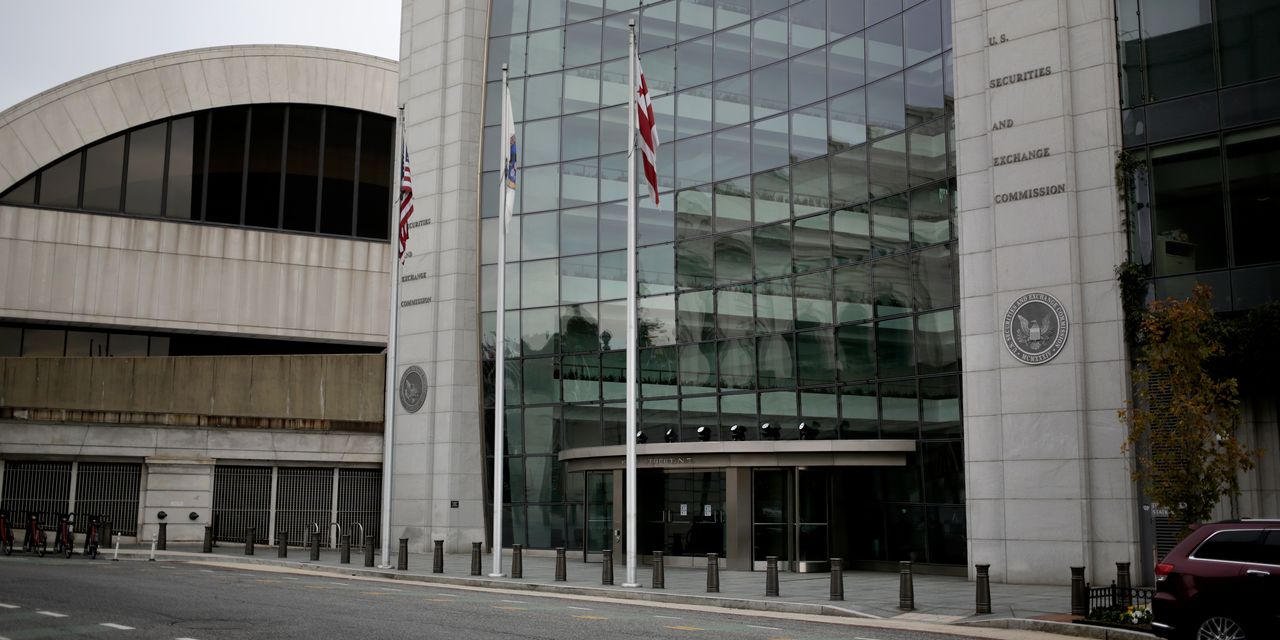
WASHINGTON—The Securities and Exchange Commission suffered a rare defeat in an insider-trading case, with a judge finding the regulator failed to prove a Virginia mortgage banker traded on illicit tips.
A federal judge in northern Virginia on Monday dismissed the civil fraud case against Christopher J. Clark, whose bullish and risky trades just before a 2017 acquisition were spotted by regulators’ high-powered surveillance databases. The SEC alleged Mr. Clark’s brother-in-law, a former corporate accounting officer, told him days before the deal that Gartner Inc. IT -2.01% would buy CEB Inc.
U.S. District Judge Claude Hilton dismissed the SEC’s claims after regulators presented their evidence and before the case was sent to the jury. “There’s just simply no circumstantial evidence here that gives rise to an inference that he received the insider information,” Judge Hilton said Monday, according to a transcript.
The SEC brings an average of about three dozen insider-trading cases a year, and many lawsuits involve more than one defendant. Most traders settle before going to trial. The SEC rarely loses when it does go to court, said John Reed Stark, a former SEC enforcement lawyer now teaching at Duke Law School.
“Here you really had suspicious trading, highly suspicious trading, but no evidence of any communication about a conspiracy or wrongful act,” Mr. Stark said. “This is an out-and-out, clear-cut loss” for the SEC, he added.
Mark Cummings, a lawyer for Mr. Clark, said the outcome underscores that regulators can rely too much on statistical evidence, such as trades made just before an event that caused a company’s stock price to rise or fall. Data alone isn’t sufficient to support a civil or criminal case against a trader, he said.
Mr. Clark, 53 years old, refused to settle the SEC’s lawsuit because he had good reasons for believing CEB shares would rise, Mr. Cummings said. His research had nothing to do with his brother-in-law, William Wright, who had worked as CEB’s corporate controller.
“The lesson here is suspicious trading is not necessarily illegal trading,” Mr. Cummings said. “Just because the circumstances look bad, there can be an equally innocent reason for the activity.”
The SEC sued Messrs. Clark and Wright in December 2020, alleging they communicated several times in the month before technology research firm Gartner acquired CEB, a management consulting company, and that Mr. Wright shared news of the undisclosed deal with his brother-in-law.
Mr. Wright agreed in October to settle the SEC’s lawsuit without admitting or denying the claims. He paid a $241,000 fine and agreed to be barred for two years from serving as an officer or director of a public company. “He’s grateful for Judge Hilton’s ruling,” said Kevin Muhlendorf, an attorney for Mr. Wright.
An SEC attorney at Monday’s hearing suggested the agency could appeal the judge’s decision. An agency spokesman declined to comment further.
To pay for his trades, Mr. Clark sold investments owned by his wife, borrowed money from a credit union and took a loan against his car, according to the SEC. Mr. Clark bet on the shares because he believed CEB’s stock price was undervalued at the time and would climb as the broader market roared higher after Donald Trump’s election in November 2016, Mr. Cummings said.
Mr. Clark’s bets on CEB options weren’t out of character with his previous trading, according to court records. He regularly traded CEB options over the years, usually betting that the shares would fall after the company reported earnings, according to the SEC’s complaint.
The SEC alleged that some of Mr. Clark’s earlier trades followed phone conversations with his brother-in-law, although court records didn’t detail what was said.
Judge Hilton said he was unpersuaded by the SEC’s argument, which wasn’t strong enough to allow a jury to infer that Mr. Clark had access to material nonpublic information.
“The government can speculate that he made a little too much money, he was a little too successful or more successful than he ought to be, so therefore he’s getting insider information,” Judge Hilton said, according to the hearing transcript. “But there’s no evidence of it.”
Write to Dave Michaels at [email protected]
Copyright ©2021 Dow Jones & Company, Inc. All Rights Reserved. 87990cbe856818d5eddac44c7b1cdeb8








